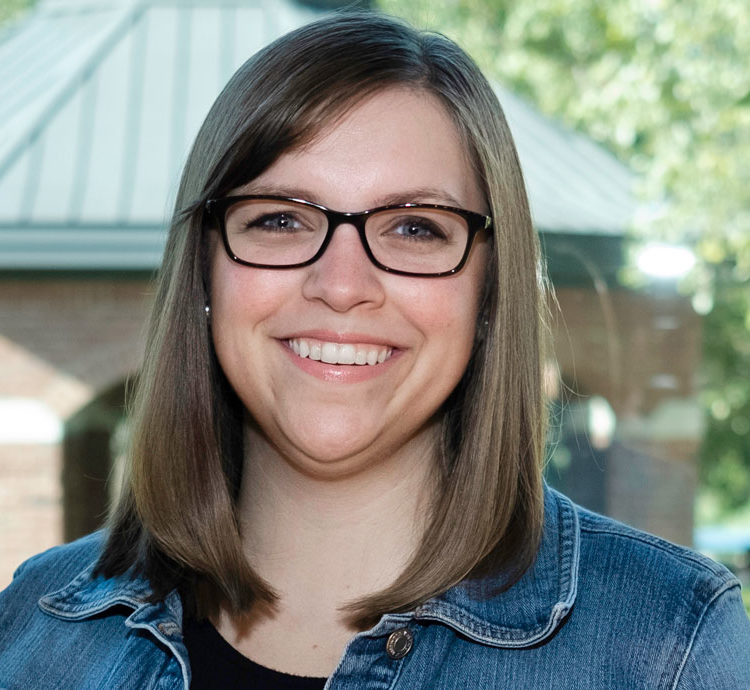Small group Bible studies. They take time. They take commitment. There is an overwhelming amount of studies to choose from. Group dynamics can be tricky. Preparing for it can be hard. Where do you even start when considering joining or organizing a group to study the Bible together?
In this unique season of social distancing, you may be feeling the drain of not being able to be with others. Though a difficult reality, this longing is not all that surprising since we were created to be in community with each other. This season requires increased intentionality to be in community with others and to grow in our faith and understanding together. Reading, studying and applying God’s Word together in a small group is a spiritual discipline that, through the work of the Spirit, has the power to transform us as individuals and communities.
In the “Spiritual Disciplines Handbook,” Adele Ahlberg Calhoun notes that beyond transformation, other God-given fruits of small groups are “keeping company with God and others, being known in a safe and supportive community, being part of something larger than your own independent journey, caring for others beyond your personal family and immediate friends, and increasing openness to people who are different than you.” What great fruit to reap during this season!
“Let us not give up meeting together, as some are in the habit of doing, but let us encourage one another—and all the more as you see the Day approaching.” —Hebrews 10:25
We hope you will find these tips and resources helpful in overcoming some of the typical roadblocks to participating in a small group Bible study!
JOIN A GROUP
The first thing you need to do is find the people who will make up your small group community. You may have a natural group of friends that come to mind, but try to think through a few others who you aren’t as close with and would like to get to know better. Typically, a good size for a small group is six to eight people. Remember that while meeting through an online platform makes it easier to have more participants, it also can make it more difficult to navigate communication and have a conversation. Reach out to the people who come to mind and ask if they would be interested in studying Scripture with you in a small community.
LEAD A GROUP
While you can identify one person to lead the group, shared leadership of a small group can also work! This is especially true if you are working through the content together and are seeking dynamic discussion as opposed to listening and responding to teachings. While shared leadership can work well, you will likely still want to identify one person who will help keep the group on track with communication, reminders for meetings and setting up the virtual meeting.
CHOOSE CONTENT FOR THE GROUP
Though you may want to decide as a group what content to study, it will be helpful if someone from the group presents a few ideas. There are many good Bible studies out there. Some are thematic or topical while others go through one book of the Bible. You can also pick a Bible study method or two to learn and use together and choose any book of the Bible to apply it to. This is great since it teaches you skills for lifelong Bible reading as an individual or in a group setting.
Here are a few very simple Bible study methods.
THE COMA METHOD
This method asks questions to help you engage contextually and personally with a passage of Scripture. After reading the passage, work through the following sets of questions. If you find that you like this method, “One to One Bible Reading” has COMA questions that are specific to each genre of Scripture. This method is helpful in helping you ask good questions of a text and examining the text itself before applying it to your life.
1. Ask Context questions of the text.
- What sort of writing is this (e.g., narrative, letter, poem?)
- Are there clues about the circumstances during which it was written?
- What has happened so far?
2. Ask Observation questions of the text.
- Are there any major subsections or breaks in the text?
- What is the main point(s)?
- What surprises are there?
- What are the key words? What words or ideas are repeated?
3. Ask Meaning questions of the text.
- How does this text relate to other parts of the book?
- How does the passage relate to Jesus?
- What does this teach us about God?
- How could we sum up the meaning of this passage in our own words?
4. Ask Application questions of the text.
- How does this passage challenge (or confirm) my understanding?
- Is there some attitude I need to change?
- How does this passage call on me to change the way I live?
THE NUMBER METHOD
Choose a book of the Bible and identify major themes throughout that book. It is quite simple to find resources where the themes of a book have already been identified for you. Study Bibles often have themes in the introduction to the book. “How to Read the Bible Book by Book” is also a great resource for this. Make a numbered list of a few themes (six or less would be ideal to begin) in a notebook or at the top of the first page of the book in your Bible. As you read, put the number of the theme from your list that coordinates with the verse. Use the numbers to track how the theme moves throughout the book (e.g., What theme is most prominent? Does one theme typically come before or after another theme? Does a certain theme show up at the beginning or end and not appear elsewhere?). This method is helpful for tracking the themes of a book.
THE COLOR METHOD
For this method, you’ll need some colorful writing utensils that won’t bleed through the pages, like colored pencils or crayons. Each color will represent a biblical theme. Some good themes to begin with are:
- Red: “Sin & consequences”
- Orange: “Characteristics of God’s People”
- Yellow: “Salvation & the Cross”
- Green: “God’s promises”
- Blue: “Characteristics of God”
- Purple: “Future Hope of Eternity”
- Brown: “God’s Word”
Highlight verses in the corresponding colors as you read a text. If you are a visual learner, this method is excellent in helping you remember where different themes are throughout Scripture as your Bible fills up with colors.
Here are a few other Bible study resources from parachurch ministries that serve college campuses:
- Cru Bible Study Resources: Cru has a lot of great Bible Study resources. You can search their database by topic, book of the Bible, or the spiritual interest of your group. All of their studies are fairly short—about four pages—and aren’t necessarily sequential, so you could have a lot of flexibility in what you discuss each week.
- InterVarsity Bible Study Resources: Currently InterVarsity has two different studies available: a 14-week study on Mark 1-8 and a Luke/Acts study including 20 passages from Luke and 10 from Acts. Both have very specific questions that could help guide your discussion.
- Navigators Bible Study Resources: The Navigators have many Bible study resources available on a variety of topics. Most are quite short and have a PDF download that could easily be shared with a group.
COMMIT TO THE GROUP
Next, all the group members should commit to the study. Be clear about the details of the meeting.
- When will you meet?
- How often will you meet?
- What platform will you use to meet (e.g., Zoom, Facetime, Google Hangouts)?
Be clear about expectations for the group.
- What will you study?
- Should participants come prepared having worked through the content alone?
- Are you rotating who is leading the discussion each week?
- Is someone going to send out the content and reminders for the meeting?
Clarify these details and commit to them together.
GROW WITH THE GROUP
After completing the first few steps, you should be well on your way to having a successful small group! Keep the lines of communication open, be honest with each other and keep confidentiality with the group. Check-in regularly outside of the group, especially if someone misses a meeting. Be open to how the Spirit leads in your group and pray regularly together.
We would love to hear about how you are growing and transforming through a small group community this summer!









